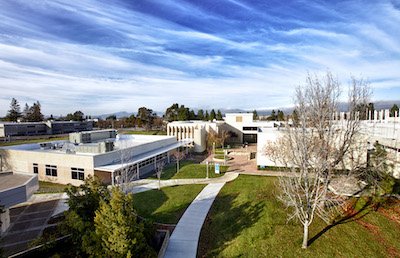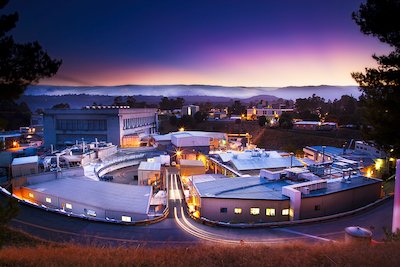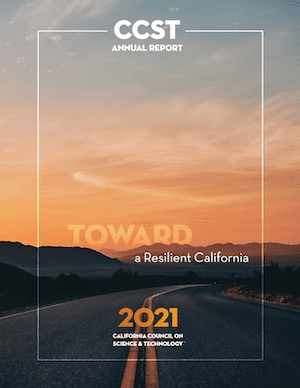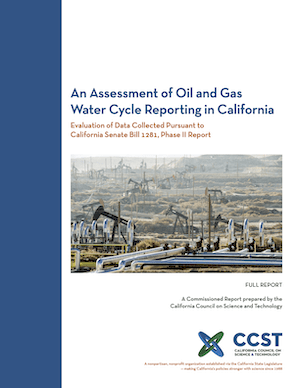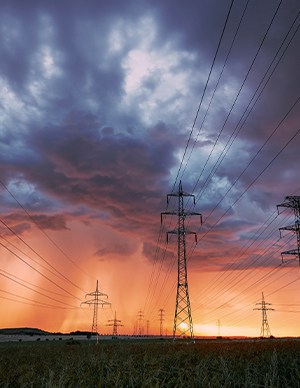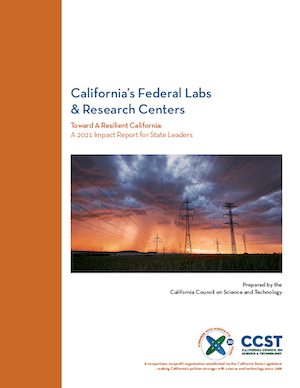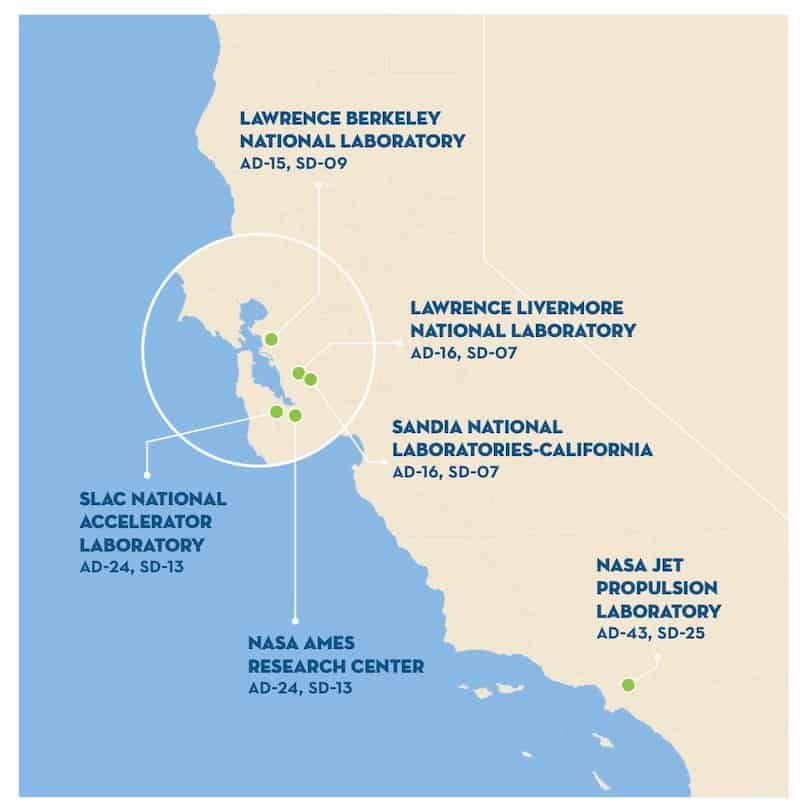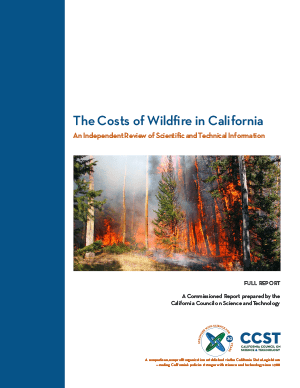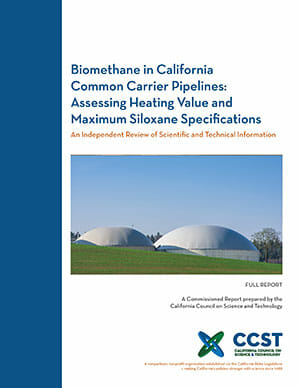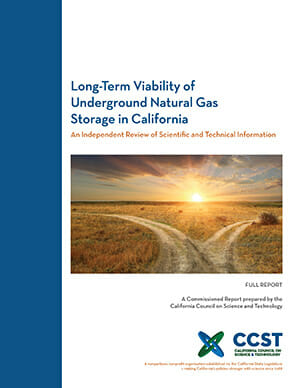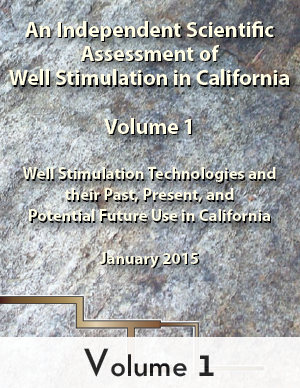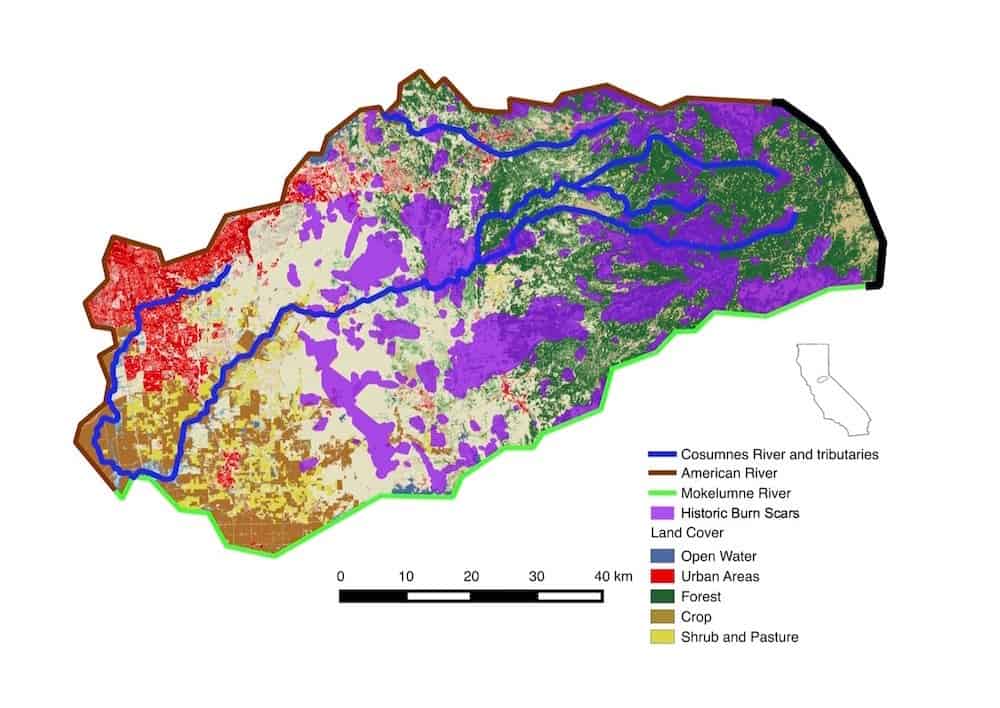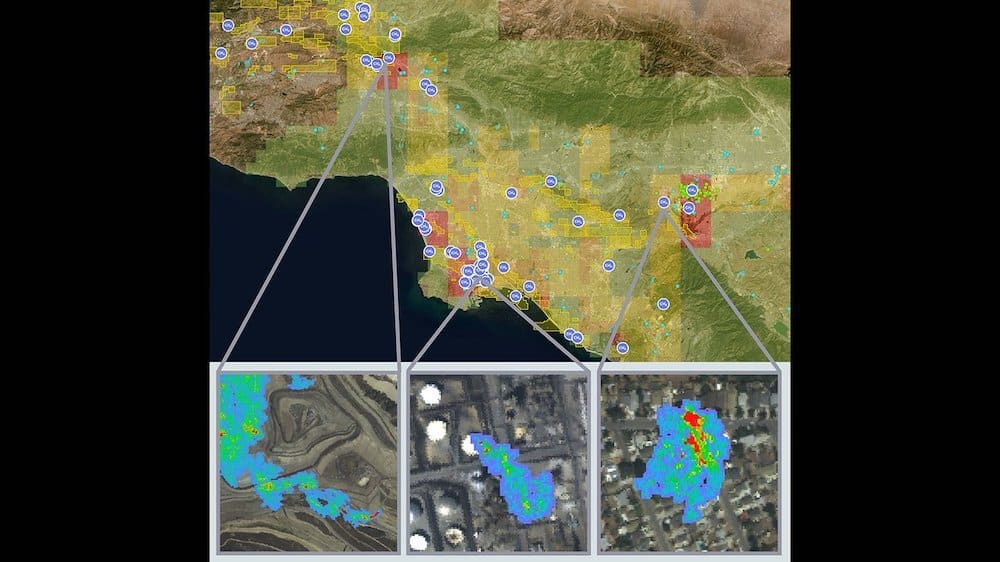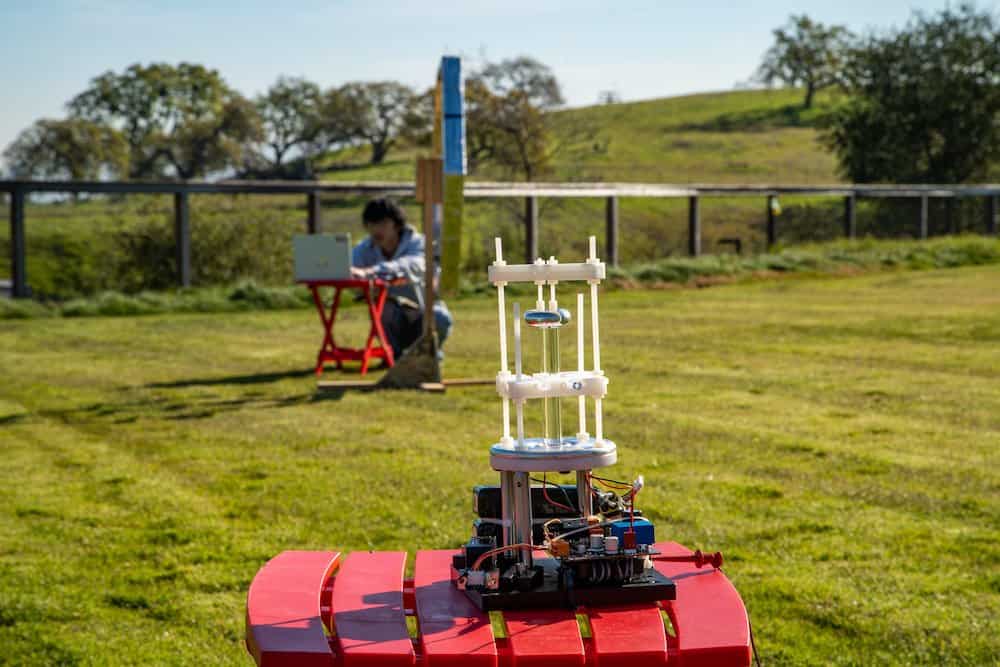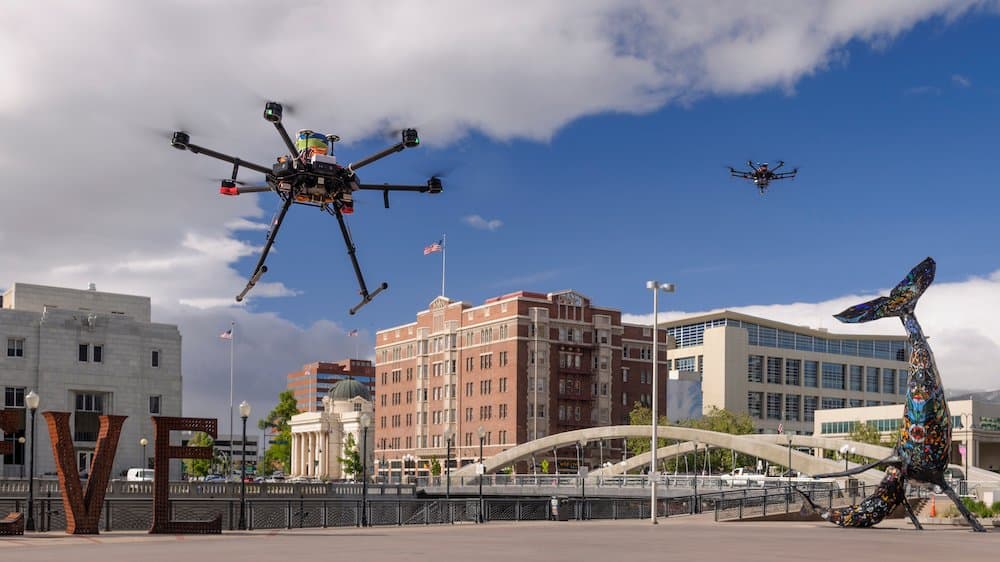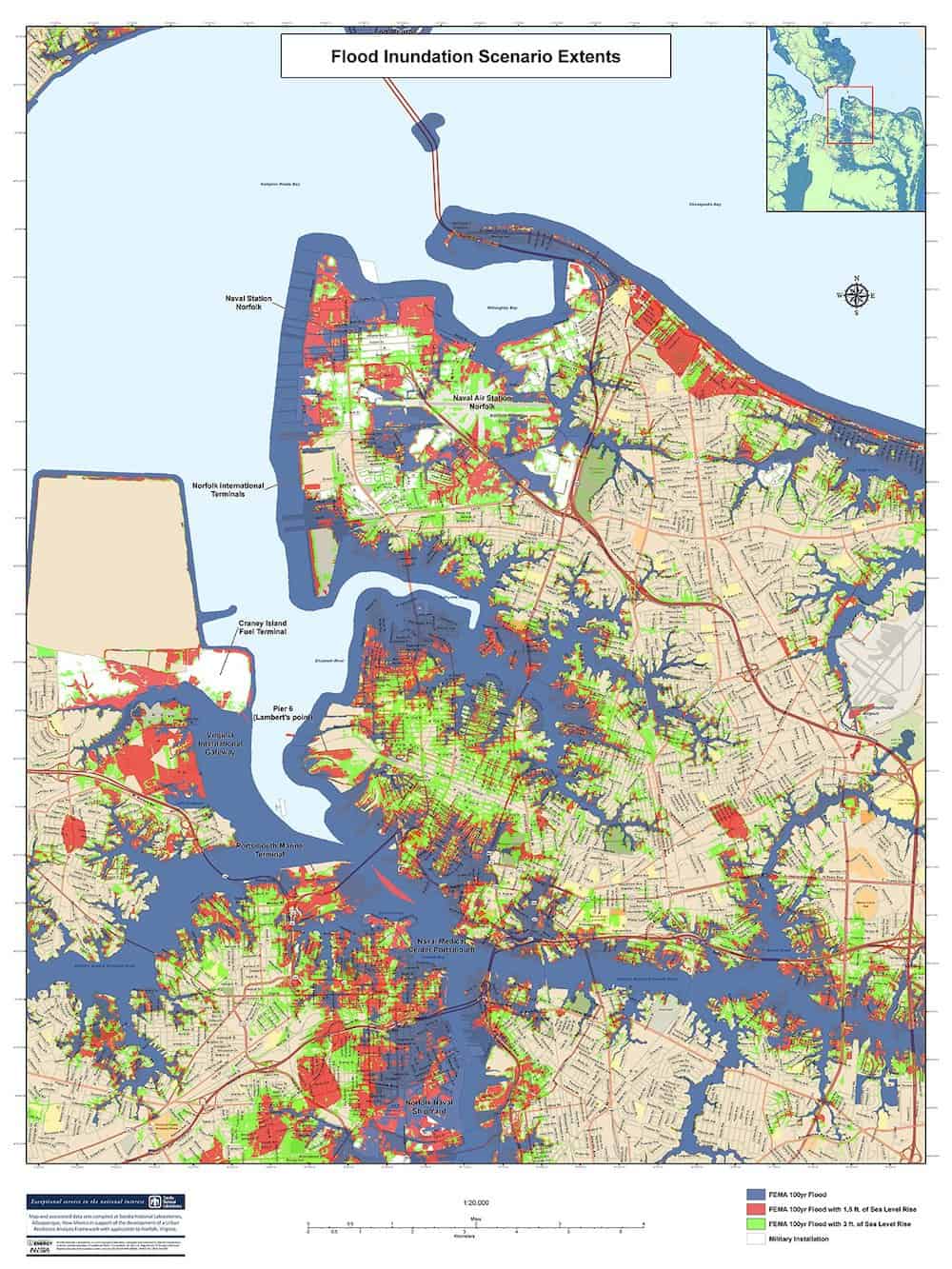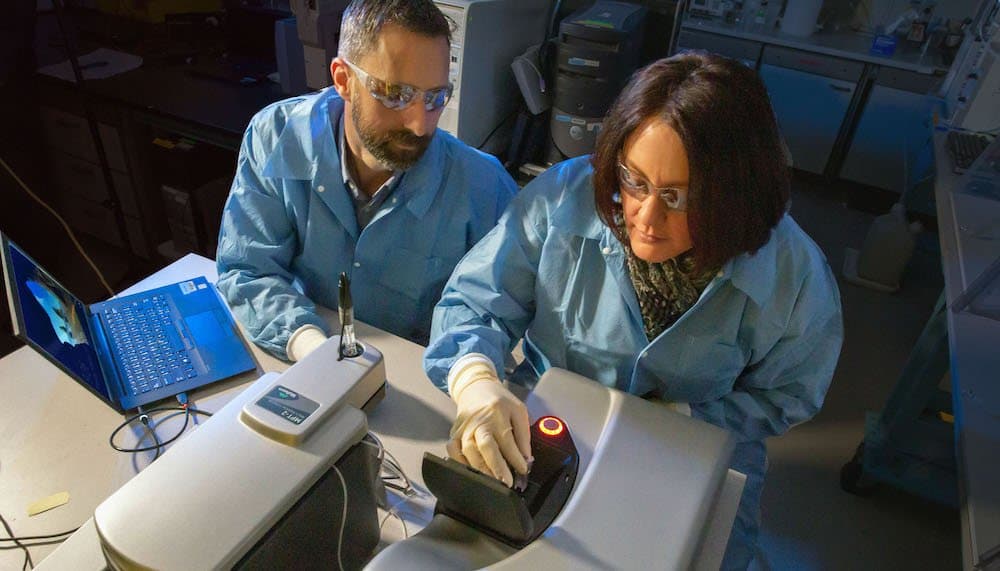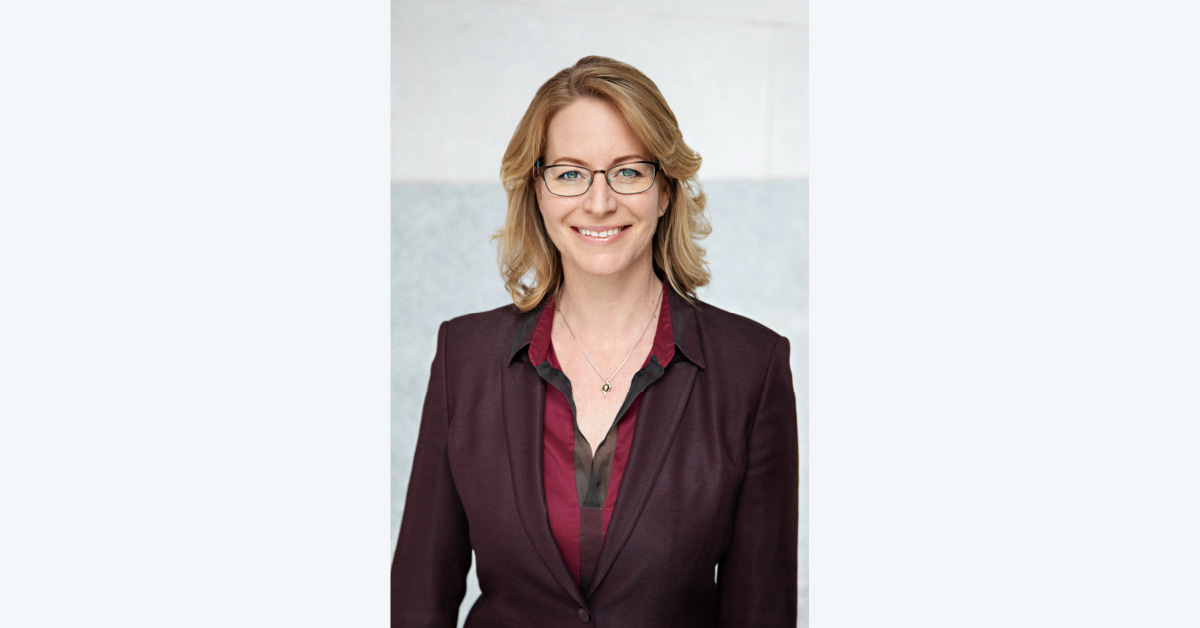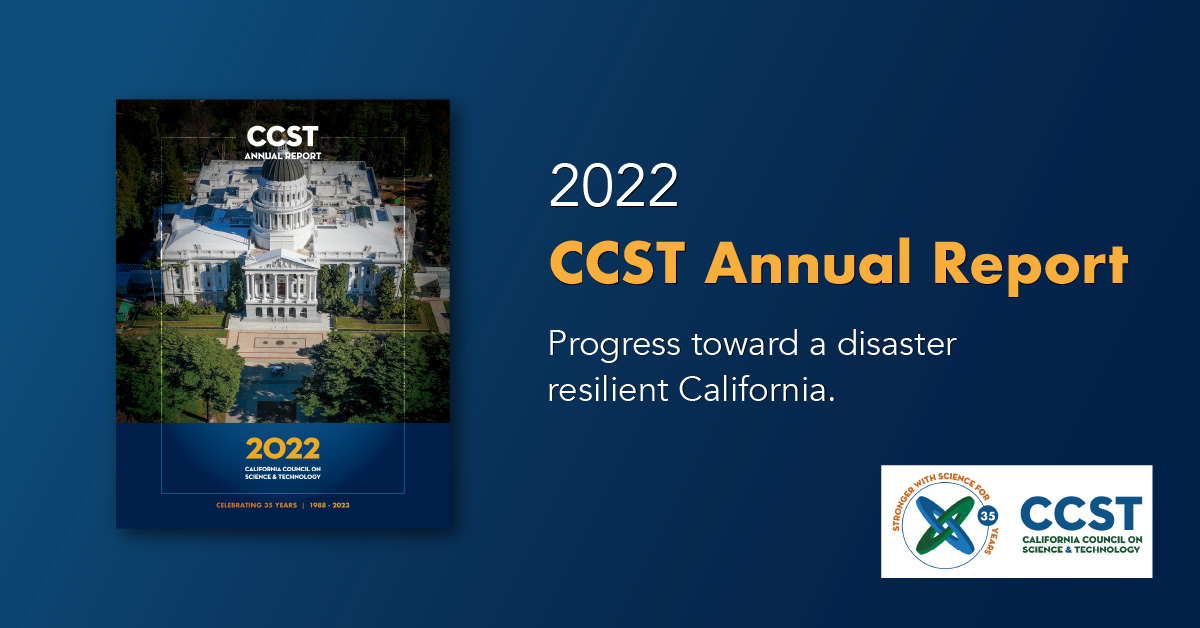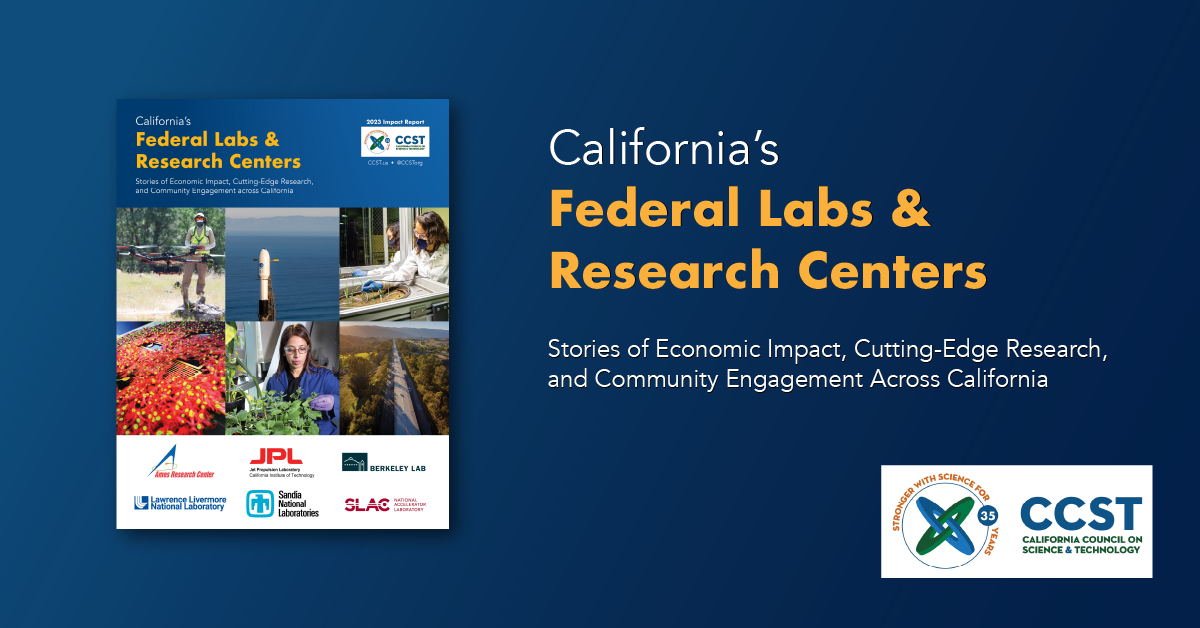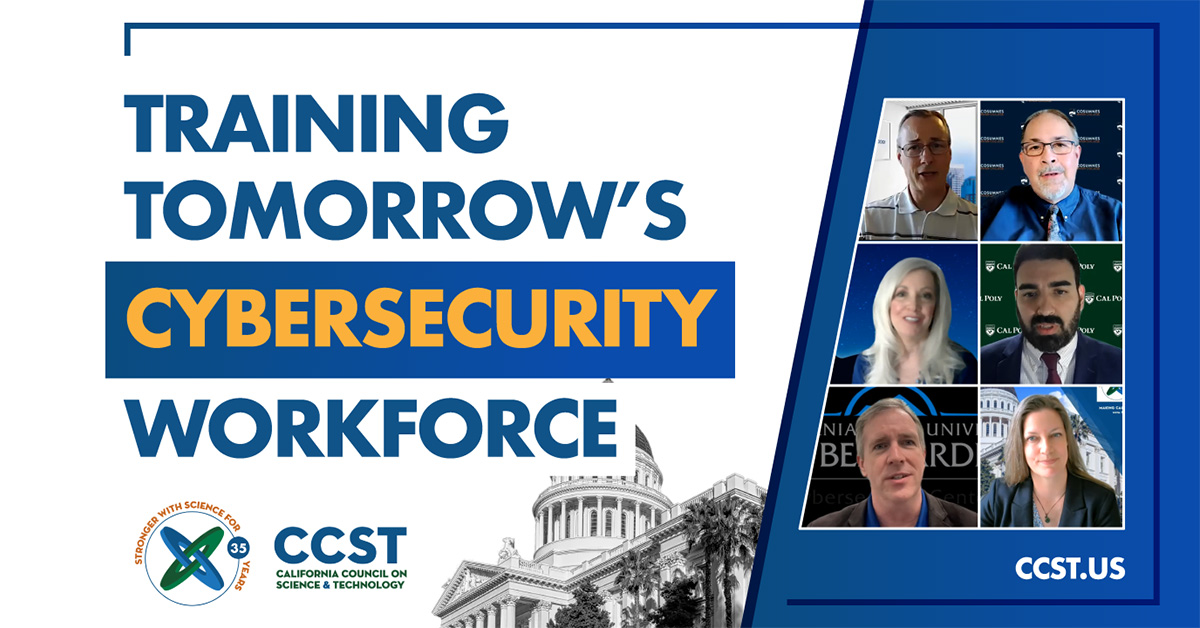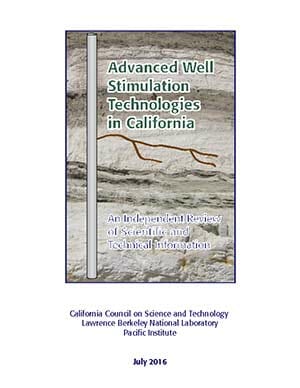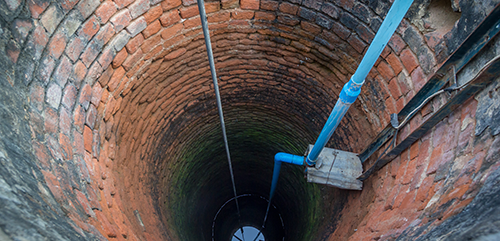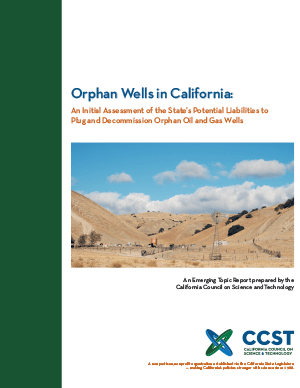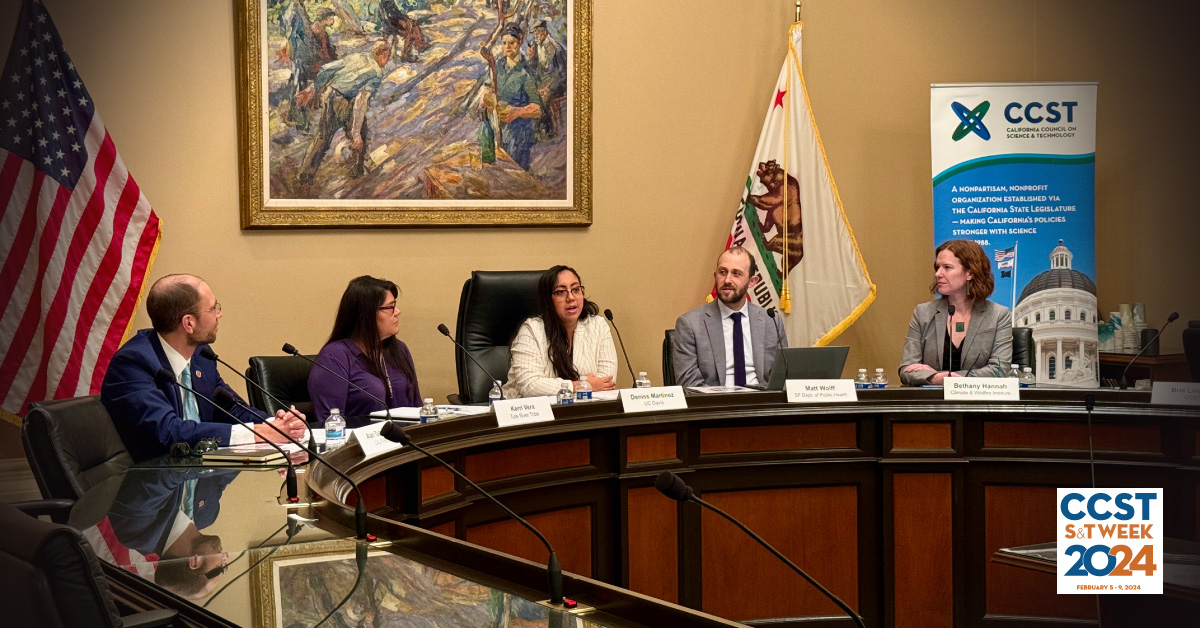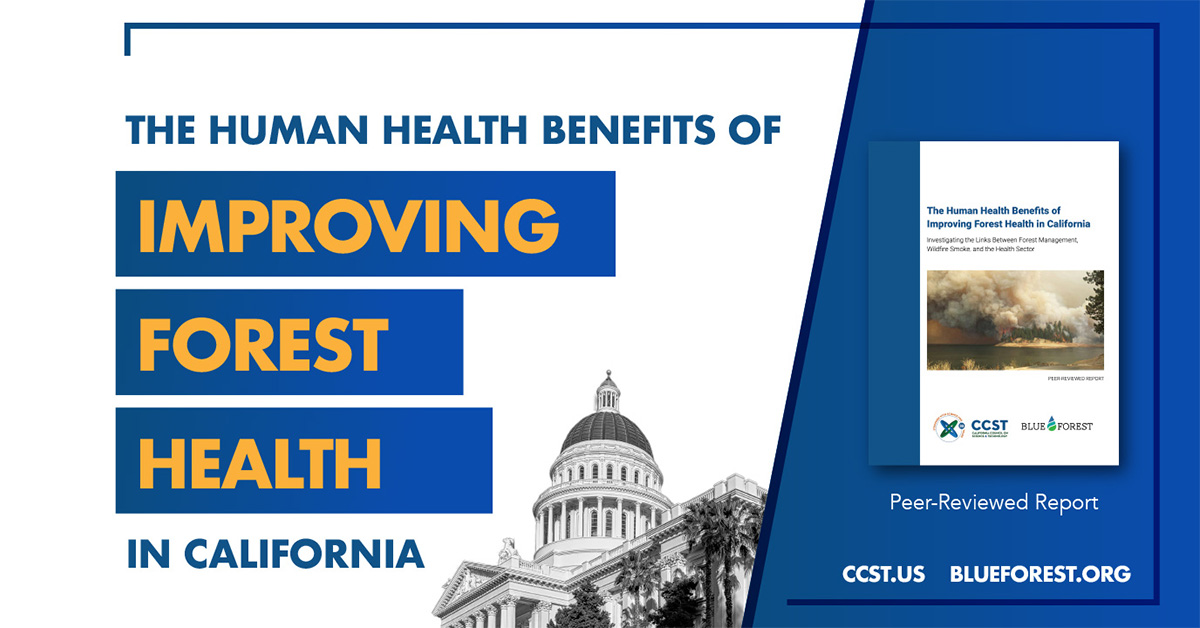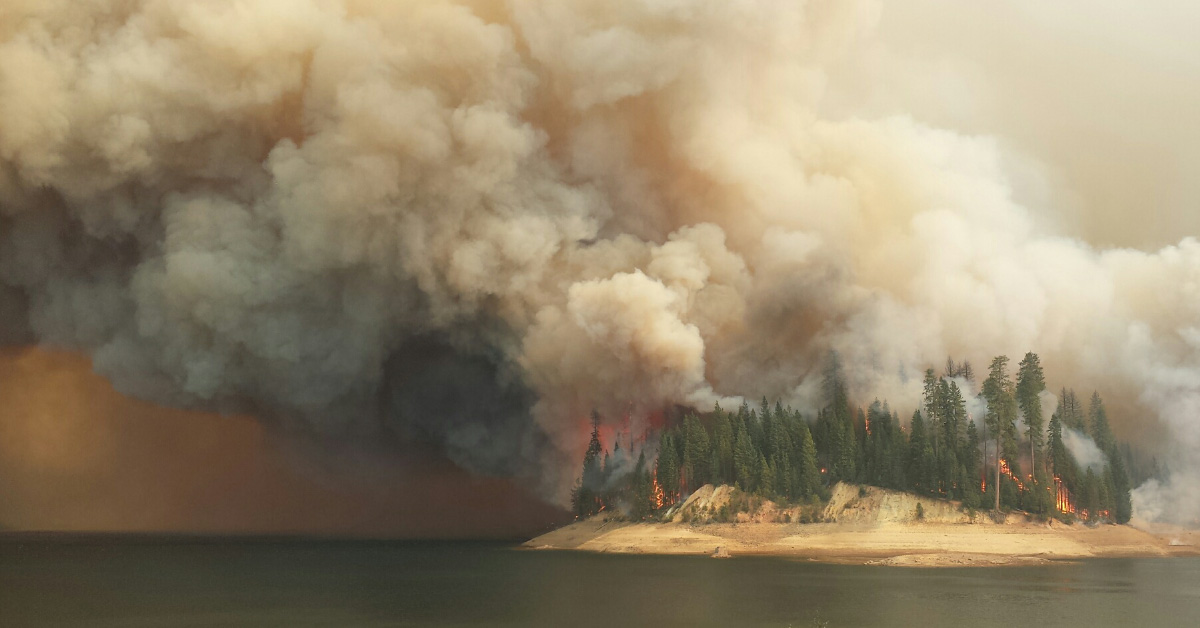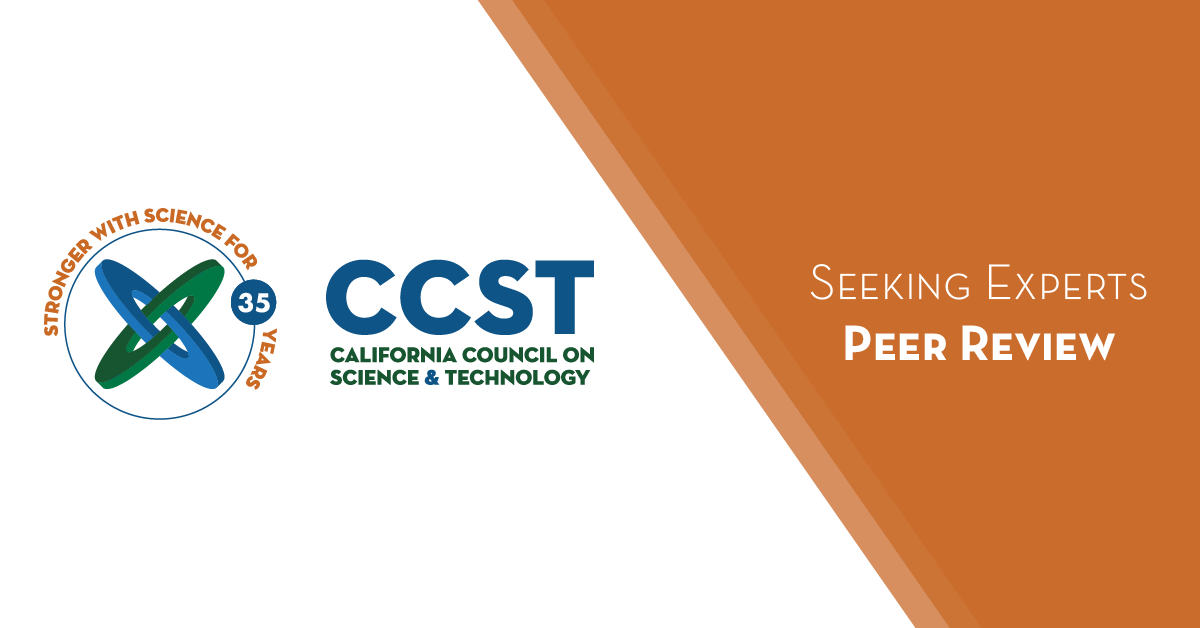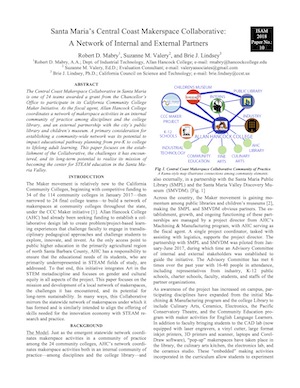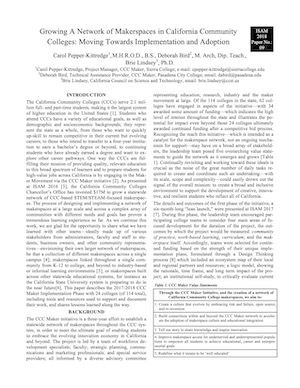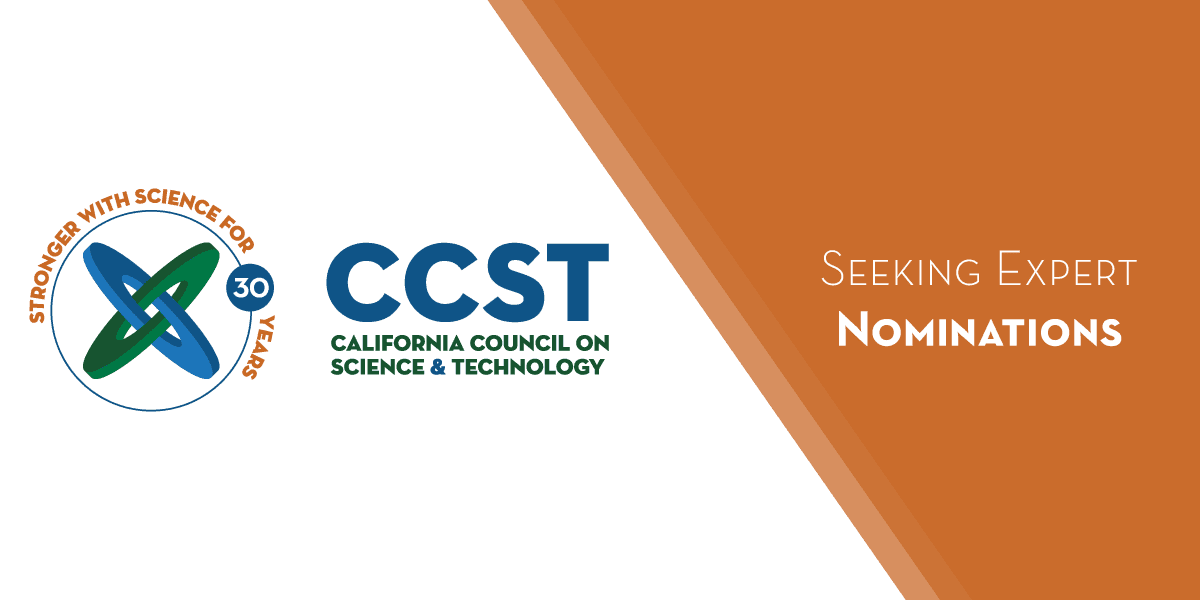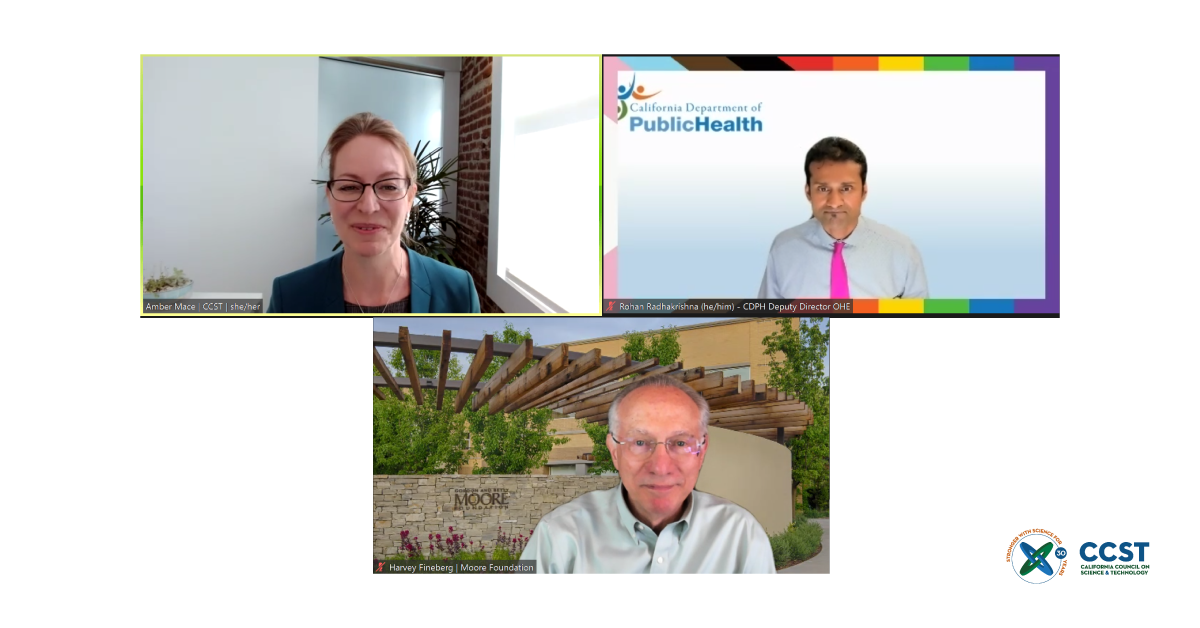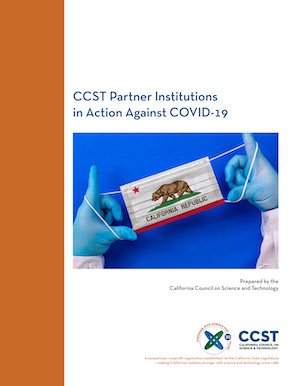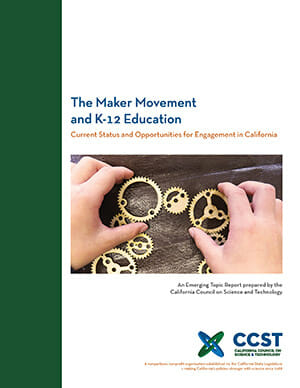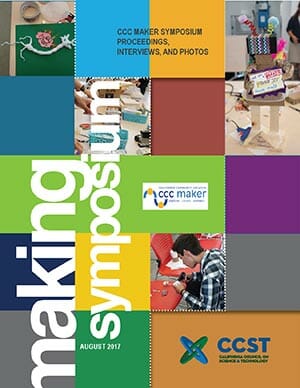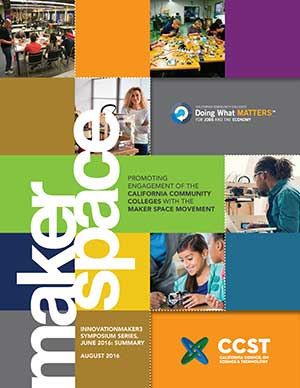2021 Impact Report
California's Federal Labs & Research Centers
Federal Labs Quick Reference
CCST can assist California Legislative and Executive offices in navigating federal research resources in the State of California.
For assistance, please contact:
Sarah Brady, PhD
CCST Deputy Director
[email protected]
(916)492-0996
| Name | Title | Federal Lab | Website | |
|---|---|---|---|---|
| Lisa Lockyer | Government Affairs | NASA's Ames Research Center | [email protected] | www.nasa.gov/ames |
| Michele Johnson | Office of Communications | NASA's Ames Research Center | [email protected] | www.nasa.gov/ames |
| Cindy Lee | Government Affairs | NASA's Jet Propulsion Laboratory | [email protected] | www.jpl.nasa.gov |
| Jim Hawley | State and External Relations | Lawrence Berkeley National Laboratory | [email protected] | www.lbl.gov |
| Dan Krotz | Strategic Communications | Lawrence Berkeley National Laboratory | [email protected] | www.lbl.gov |
| Steven R. Bohlen | Senior Director, Government and External Affairs | Lawrence Livermore National Laboratory | [email protected] | www.llnl.gov |
| Scott F. Wilson | State Government Liaison | Lawrence Livermore National Laboratory | [email protected] | www.llnl.gov |
| Patrick Sullivan | Government Relations | Sandia National Laboratories/California | [email protected] | www.sandia.gov |
| Michael Ellis Langley | Corporate Communications Specialist | Sandia National Laboratories/California | [email protected] | www.sandia.gov |
| Erika Bustamante, PhD | State Government Relations | SLAC National Accelerator Laboratory | [email protected] | www.slac.stanford.edu |
| Melinda Lee | Communications | SLAC National Accelerator Laboratory | [email protected] | www.slac.stanford.edu |



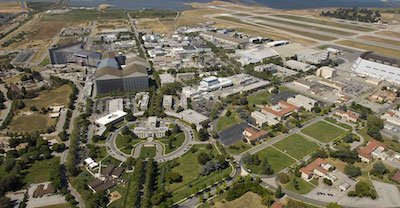
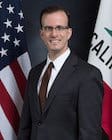 “NASA Ames is a vital source of innovation in the Silicon Valley region. The scientific breakthroughs developed there are a great boon to all Californians.” — Assemblymember Marc Berman (D-Palo Alto)
“NASA Ames is a vital source of innovation in the Silicon Valley region. The scientific breakthroughs developed there are a great boon to all Californians.” — Assemblymember Marc Berman (D-Palo Alto)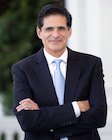 “Thanks to the ingenuity of NASA Ames’ research and development, the technology pioneered for exploration of space also has important applications in meeting the challenges we face on Earth. From COVID to climate change, and water treatment to disaster response, NASA Ames offers solutions that can help us battle the emergencies that confront us today and aid us in building resilience for our future.” — Senator Josh Becker (D-San Mateo)
“Thanks to the ingenuity of NASA Ames’ research and development, the technology pioneered for exploration of space also has important applications in meeting the challenges we face on Earth. From COVID to climate change, and water treatment to disaster response, NASA Ames offers solutions that can help us battle the emergencies that confront us today and aid us in building resilience for our future.” — Senator Josh Becker (D-San Mateo)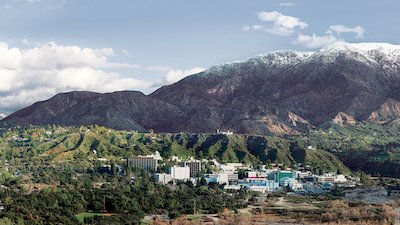
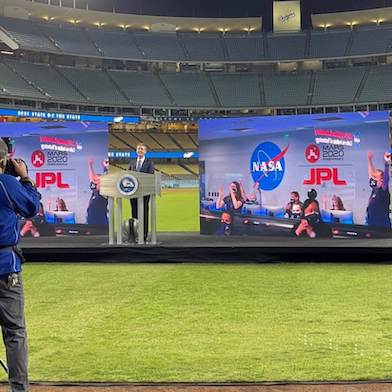
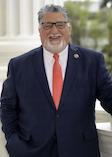 “The dedicated scientists at NASA/ JPL are continuously pushing the boundaries of human discovery, from a mission to Mars to new insights into how Earth’s lands, oceans, and climate are evolving. The discoveries and technologies made there improve the lives of all Californians and make us more resilient when confronting natural disasters and climate change. And, how about the amazing Perseverance and its helicopter!” — Senator Anthony Portantino (D-La Canada Flintridge)
“The dedicated scientists at NASA/ JPL are continuously pushing the boundaries of human discovery, from a mission to Mars to new insights into how Earth’s lands, oceans, and climate are evolving. The discoveries and technologies made there improve the lives of all Californians and make us more resilient when confronting natural disasters and climate change. And, how about the amazing Perseverance and its helicopter!” — Senator Anthony Portantino (D-La Canada Flintridge)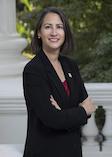 “In meeting the challenges of robotic space exploration, JPL brings new knowledge to California that keeps our state a world leader in science and technology. JPL’s research and talented workforce are an asset to the 43rd Assembly District and greatly enhance our economic vitality.”— Assemblymember Laura Friedman (D-Glendale)
“In meeting the challenges of robotic space exploration, JPL brings new knowledge to California that keeps our state a world leader in science and technology. JPL’s research and talented workforce are an asset to the 43rd Assembly District and greatly enhance our economic vitality.”— Assemblymember Laura Friedman (D-Glendale)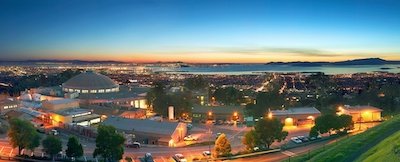
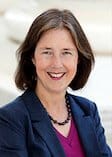 Berkeley Lab is home to world- renowned scientific leaders. These brilliant minds are crafting the technology we need — today and tomorrow — to advance our lives, protect our planet, and enhance our economy. Berkeley Lab researchers are on the cutting edge of technological transformation, for California and the world.” — Senator Nancy Skinner (D-Berkeley)
Berkeley Lab is home to world- renowned scientific leaders. These brilliant minds are crafting the technology we need — today and tomorrow — to advance our lives, protect our planet, and enhance our economy. Berkeley Lab researchers are on the cutting edge of technological transformation, for California and the world.” — Senator Nancy Skinner (D-Berkeley)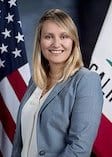 “Berkeley Lab is a world leading scientific institution. Its facilities are used by researchers across the state. Its scientists are helping lead the way on new technologies and innovations to tackle big challenges—from climate change, to energy storage and clean water, creating jobs for our state.” — Assemblymember Buffy Wicks (D-Oakland)
“Berkeley Lab is a world leading scientific institution. Its facilities are used by researchers across the state. Its scientists are helping lead the way on new technologies and innovations to tackle big challenges—from climate change, to energy storage and clean water, creating jobs for our state.” — Assemblymember Buffy Wicks (D-Oakland)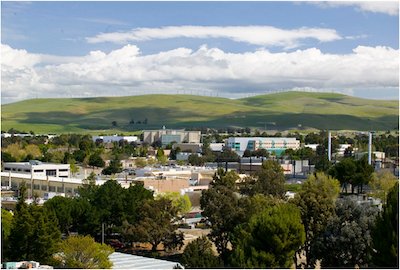
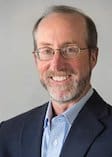 “LLNL is a huge contributor to California’s economy, providing high-end jobs, bringing in federal research dollars, and forming academic and industrial partnerships. I never hesitate to hold up LLNL as a shining example of the technological and entrepreneurial excellence that the Bay Area can offer.” — Senator Steve Glazer (D-Orinda)
“LLNL is a huge contributor to California’s economy, providing high-end jobs, bringing in federal research dollars, and forming academic and industrial partnerships. I never hesitate to hold up LLNL as a shining example of the technological and entrepreneurial excellence that the Bay Area can offer.” — Senator Steve Glazer (D-Orinda)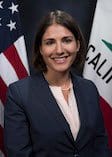 “LLNL has been a leader in national security and fundamental science for generations, and its many contributions, inventive technologies, and passion for STEM education have helped shape California’s and the East Bay region’s thriving innovation ecosystems. We’re proud to have such an important institution as part of our community.” — Assemblymember Rebecca Bauer-Kahan (D-Orinda)
“LLNL has been a leader in national security and fundamental science for generations, and its many contributions, inventive technologies, and passion for STEM education have helped shape California’s and the East Bay region’s thriving innovation ecosystems. We’re proud to have such an important institution as part of our community.” — Assemblymember Rebecca Bauer-Kahan (D-Orinda)